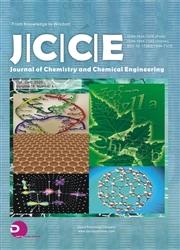Vibrational structure of selected compounds derived from biomass: lignin dimers, selected aldopentoses and aldohexoses
引用次数: 2
Abstract
The production of chemicals from biomass is a very challenging process due to its diverse chemical composition. Lignin, cellulose and hemicellulose are the three main biopolymers of wood biomass, with cell walls of plant origin. Lignin has been chosen for the present studies due to its range of different linkages and structures. The present work involved a computational study of the most dominant lignin dimers and their vibrational structures, based on the Density Functional Theory method. Full geometry optimization of the compartments used the StoBe code with cluster model and non-local functional (RPBE) approach. The calculations of the vibrational frequencies were performed with harmonic approximations as well as an anharmonicity fit in the Morse potential function, as implemented in the StoBe code. In the case of lignin, the calculations included three different precursors based on: coumaryl alcohol, coniferyl alcohol and sinapyl alcohol. To represent the cellulose and hemicellulose derivatives, selected aldopentoses and aldohexoses (arabinose, xylose, glucose, galactose, and mannose) were considered. Presented here are the theoretical investigations for a variety of biomass derived compounds, to give the possibility of obtaining a theoretical VBD (Vibrations Basis Database) for experimental spectra interpretation. Such a database could be further used in the preliminary composition assessment of biomass derived substrates, which will be discussed here in more detail.生物质衍生化合物的振动结构:木质素二聚体、醛缩戊糖和醛缩己糖
由于生物质的化学成分多种多样,从生物质中生产化学品是一个非常具有挑战性的过程。木质素、纤维素和半纤维素是木材生物质的三种主要生物聚合物,具有植物来源的细胞壁。木质素由于其各种不同的连接和结构而被选择用于本研究。本工作基于密度泛函理论方法,对最主要的木质素二聚体及其振动结构进行了计算研究。隔间的全几何优化使用StoBe代码与聚类模型和非局部函数(RPBE)方法。振动频率的计算采用谐波近似以及Morse势函数中的非谐波拟合进行,如StoBe代码中所实现的。在木质素的情况下,计算包括三种不同的前体:香豆素醇、针叶树醇和芥子醇。为了代表纤维素和半纤维素衍生物,考虑了选定的醛糖戊糖和醛糖己糖(阿拉伯糖、木糖、葡萄糖、半乳糖和甘露糖)。本文介绍了对各种生物质衍生化合物的理论研究,以提供获得用于实验光谱解释的理论VBD(振动基础数据库)的可能性。这样的数据库可以进一步用于生物质衍生基质的初步组成评估,这将在这里进行更详细的讨论。
本文章由计算机程序翻译,如有差异,请以英文原文为准。
求助全文
约1分钟内获得全文
求助全文

 求助内容:
求助内容: 应助结果提醒方式:
应助结果提醒方式:


